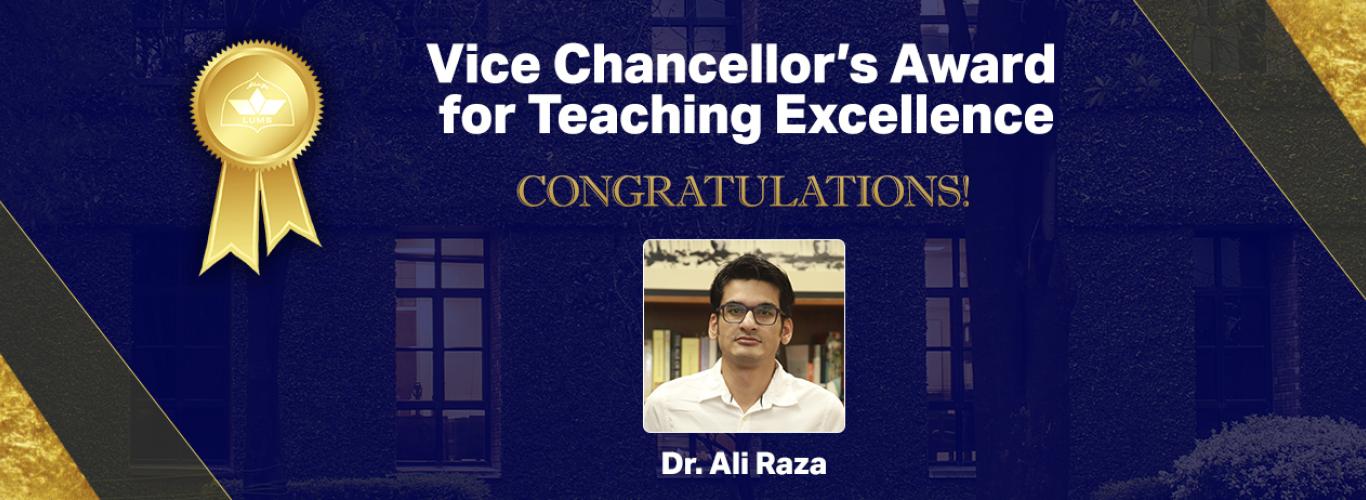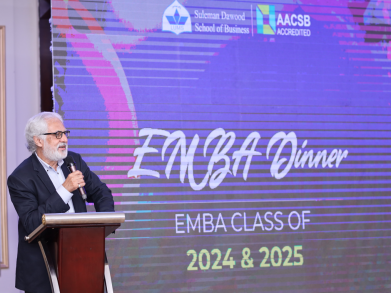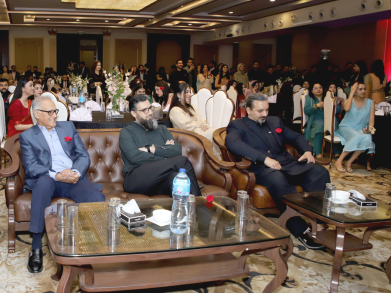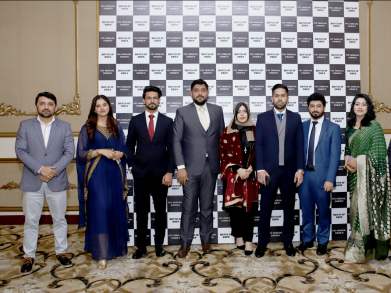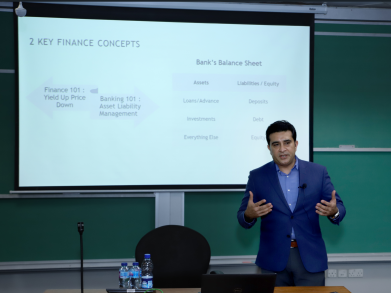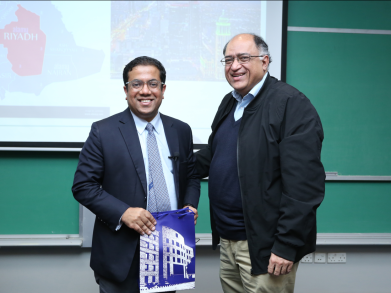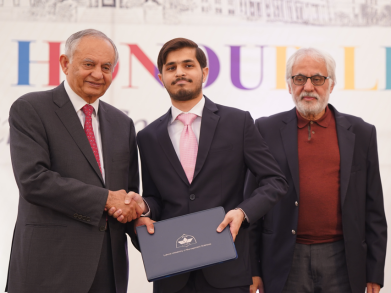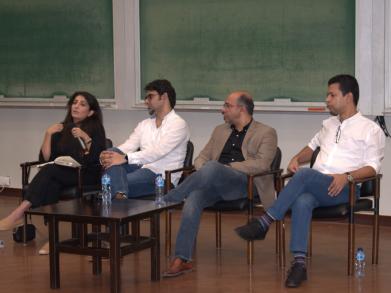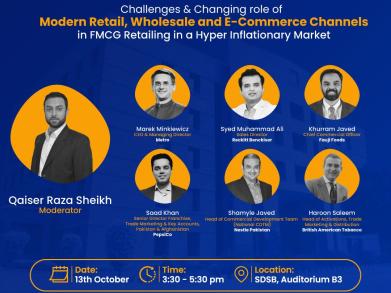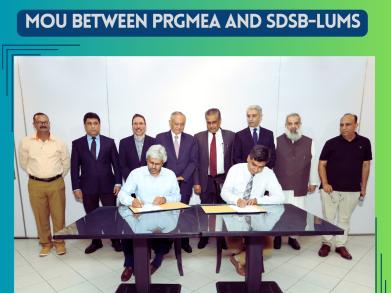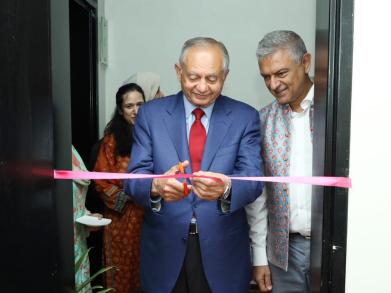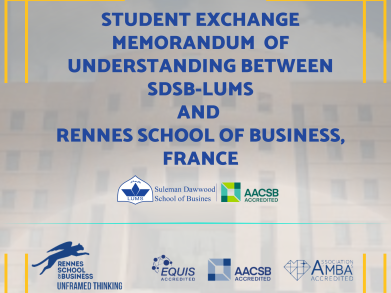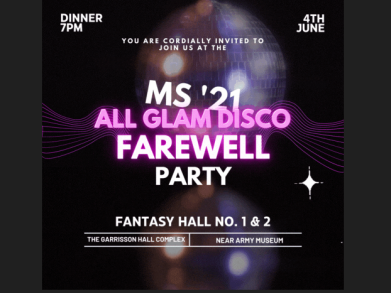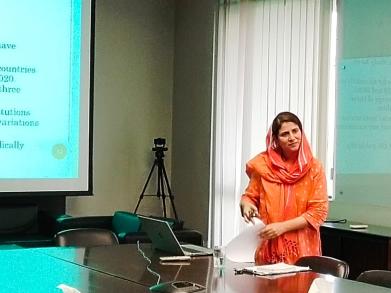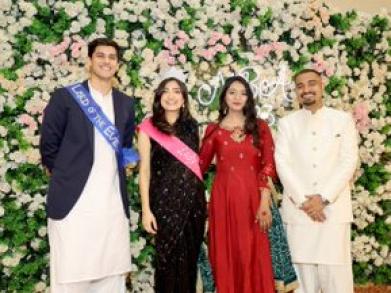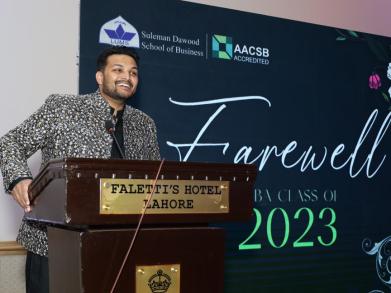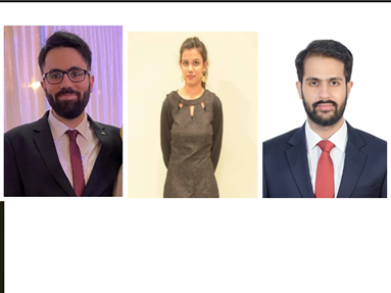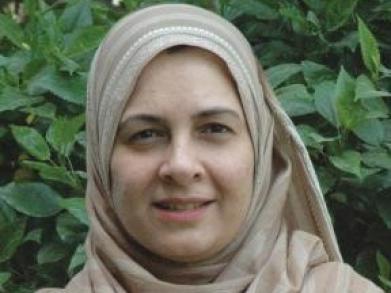In Conversation with Dr. Ali Raza, Winner of Inaugural Vice Chancellor’s Award for Teaching Excellence
Dr. Ali Raza, Associate Professor at the Mushtaq Ahmad Gurmani School of Humanities and Social Sciences is one of the five awardees of the Vice Chancellor’s Awards for Teaching Excellence. The award celebrates exceptional and inspirational teachers at LUMS.
Dr. Raza has made outstanding contributions to the teaching and learning of history at LUMS through his courses on both history and historiography. He creates innovative, engaging, and inspiring learning environments using assessment activities that are meaningful to his students.
His pedagogy is embedded in self-reflexivity, whereby he takes nuanced and varied forms of student feedback to consistently improve both the content and delivery of his courses. This ensures that his students are deeply motivated and become, as one of his former students puts it, “aware of the transformative power teaching history can have.”
Dr. Raza has inspired and engaged students and colleagues through his kindness, attentiveness and generosity with his time. He believes in the capacities of each of his students to excel beyond just the fulfilment of requirements. This is evident in his mentoring of student projects that are uniquely tied to their interests. In this regard, Dr. Raza is an outstanding practitioner who demonstrates an ethic of care that allows him to cultivate genuine enduring learning experiences for his students.
Dr. Raza was nominated by one of his former students, Ms. Shafaq Sohail, who attests to the long lasting impact of his classes. “I still revisit, with great fondness, the lives and works of the many personalities I was introduced to in his classes. I still re-read, with identical enthusiasm, the readings he assigned to us for courses, and I still look for writing and academic inspiration in his very detailed and comprehensive feedback and comments on all my assignments. It is rare for courses and instructors to have this lasting an impact on students and is thus truly symbolic of his ingenuity and acuity.”
We interviewed Dr. Raza to learn more about his thoughts on winning this award, and his experiences in the classroom.
What does winning the Vice Chancellor’s Award for Teaching Excellence mean to you?
I’m still processing it. It’s an absolute honour and I’m deeply grateful for this kindness and recognition. All of us who have won this award are in the company of truly exceptional colleagues and exceptional students. They actually help us do better.
I also see these awards as the starting point of an important conversation around teaching and learning, and how we can do them better. I hope this process leads to a wider conversation across the University in helping us, as teachers, to reflect on what the needs and requirements of our students are and what the role of a university in 21st century Pakistan ought to be.
Which teachers have been a source of inspiration for you, both when you were a student and now as a teacher yourself?
There are always a few who stand out for me from my years in school, college, university, and so on. If I were to think about them, there was one distinctive trait that connected them all. It was their ability to allow us, their students, to think for ourselves. They took our questions seriously and they took us seriously. That made a world of a difference. They also enlarged our world in a way that no one else did. I’m still in touch with some of my teachers and they continue to teach me even after all these years. I suspect they will always remain my teachers.
Your students speak very highly of the interactive nature of your classes. How have interactions with your students informed your teaching throughout your career?
When I first started teaching, I didn’t really know what to expect. I would try different methods and then think through them with my students. A lot has changed in my teaching now, from choosing what text to assign, to constructing syllabi, conducting classes, and learning to engage with a diverse set of students. These are things my students have taught me more than anyone else.
In some ways, my best teachers have been my students, because they push you to think in different directions, and to think of questions you really hadn’t anticipated. My most memorable classes have been those in which I walked away thinking about things in a completely different way than I had when I walked in. I remain grateful to all my students for their constant feedback, for what they have taught me, for their support and encouragement, and for helping me, I hope, become a better teacher.
In the past year, we’ve seen the educational landscape rapidly change. What have been the challenges that teachers have had to grapple with?
Usually, you hear about the difficulties of transitioning online, and it is true that it has been a very steep learning curve for both instructors and students. It’s very different teaching through Zoom as opposed to being in a classroom, but I have to say there are bits of it I really appreciate. There are things I’m able to do online that I wasn’t able to do in class, and when I go back to the classroom I will take the lessons I learnt through online teaching and apply them in a physical setting too.
All that said, I think we’ve also had to confront a far more difficult challenge. What this past year has forced us to reckon with, as teachers, is the question of how learning can be meaningful in a time of crisis. To me, that is the key question I keep returning to. What is a university education giving students - by way of skills, lessons, and ways of thinking about the world and their place in it - in this crisis ridden moment? How is it helping them navigate their world, their problems? How can education be made more relevant to their everyday lives? How should we respond as teachers? Those are all open-ended questions for me. I am not sure if any of us have good answers, but I nevertheless think we should keep thinking about them. There has to be more to university education, especially in this moment, than merely going through the motions and getting your hard-earned degree.
What would you say is the most rewarding part of your career as a teacher?
It starts off from very small and seemingly innocuous moments, like someone’s eyes lighting up when they truly understand and appreciate an idea or concept. That’s always immensely gratifying. Then there are the utterly brilliant questions, insights, and comments that are routinely offered by our students.
Moreover, seeing what our students do after they graduate is always such a source of joy and comfort. Whether they are going to top graduate schools or excelling in other professions, our students are going to places and making their mark on the world. I am proud of what our graduates have accomplished and I look forward to witnessing their achievements in the years to come. I like to keep close tabs on my students once they graduate. There is nothing that makes my day more than having a student writing back with an update of what they are up to!

